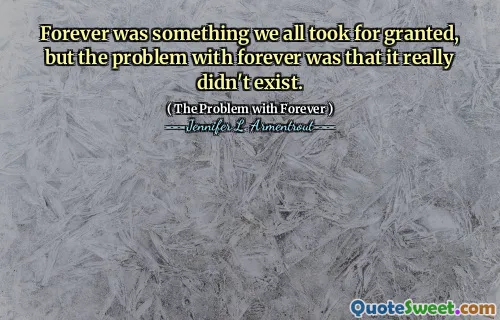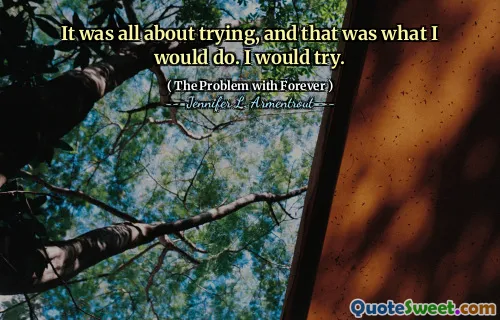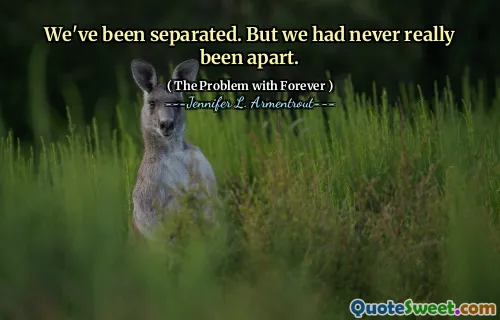
Forever was my heartbeat and it was the hope tomorrow held.
The quote "Forever was my heartbeat and it was the hope tomorrow held" from Jennifer L. Armentrout's book, The Problem with Forever, captures the essence of longing and resilience. It suggests that the concept of eternity shapes one's identity and emotional state, infusing life with purpose and hope. This heartbeat symbolizes the drive to confront challenges and look forward to a better tomorrow, emphasizing a deep connection to the future.
This sentiment resonates with many who face uncertainty in life. The idea of forever as a heartbeat implies that even in difficult times, there is an underlying rhythm of hope and possibility. It reflects a powerful relationship between our present feelings and the aspirations we hold for what lies ahead, reminding us that hope can be a guiding force in navigating adversity.











